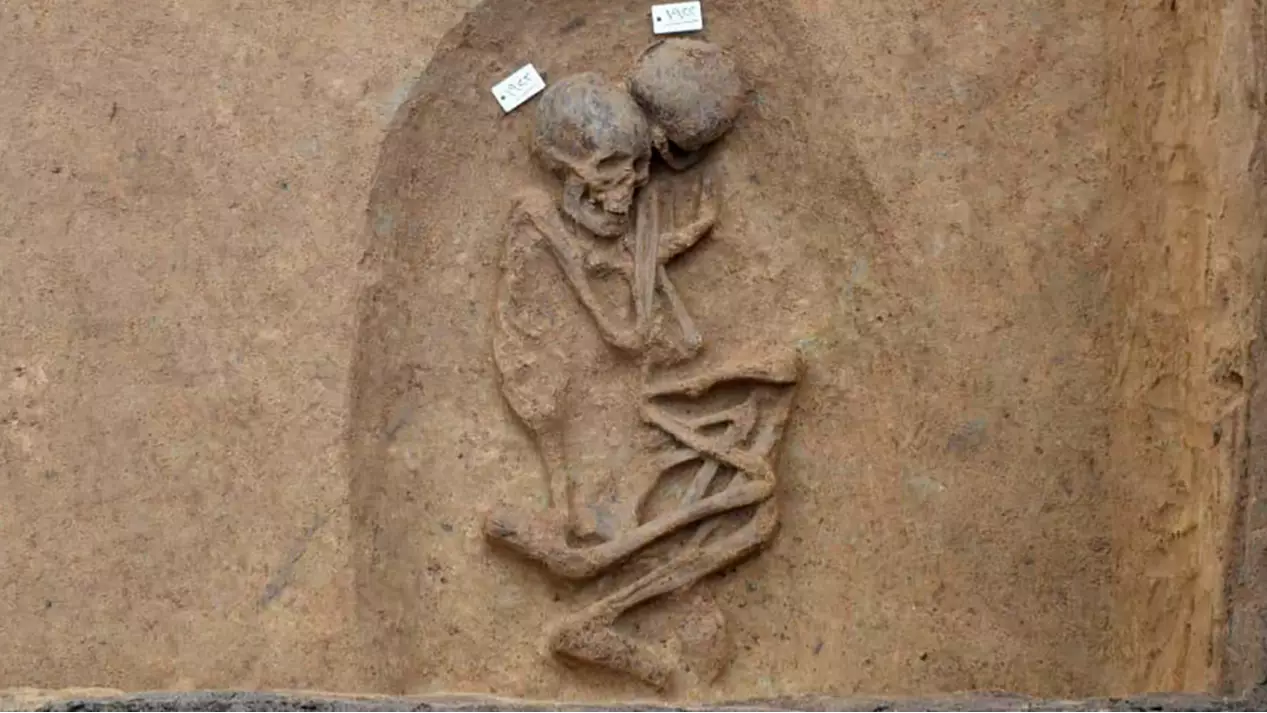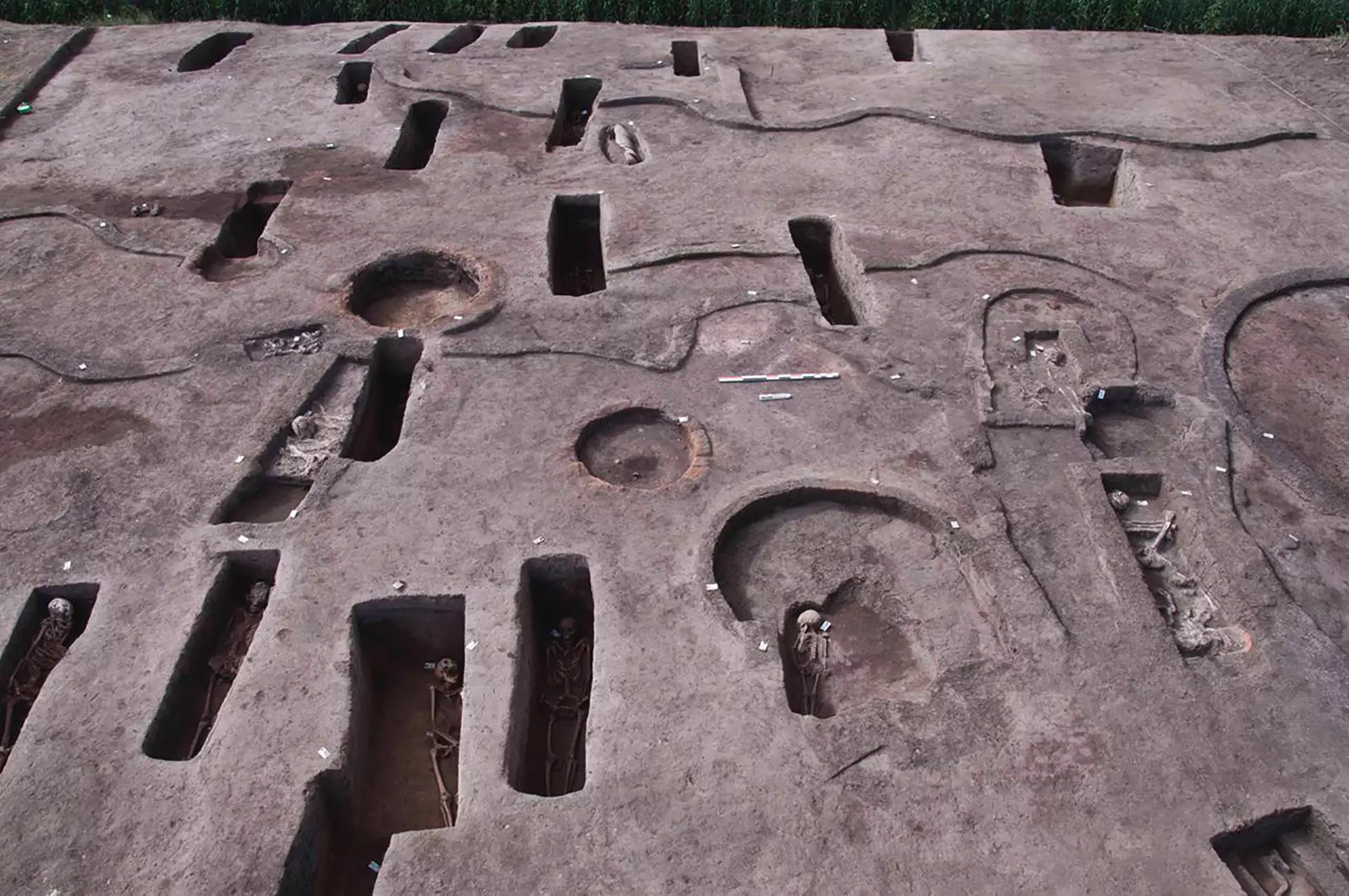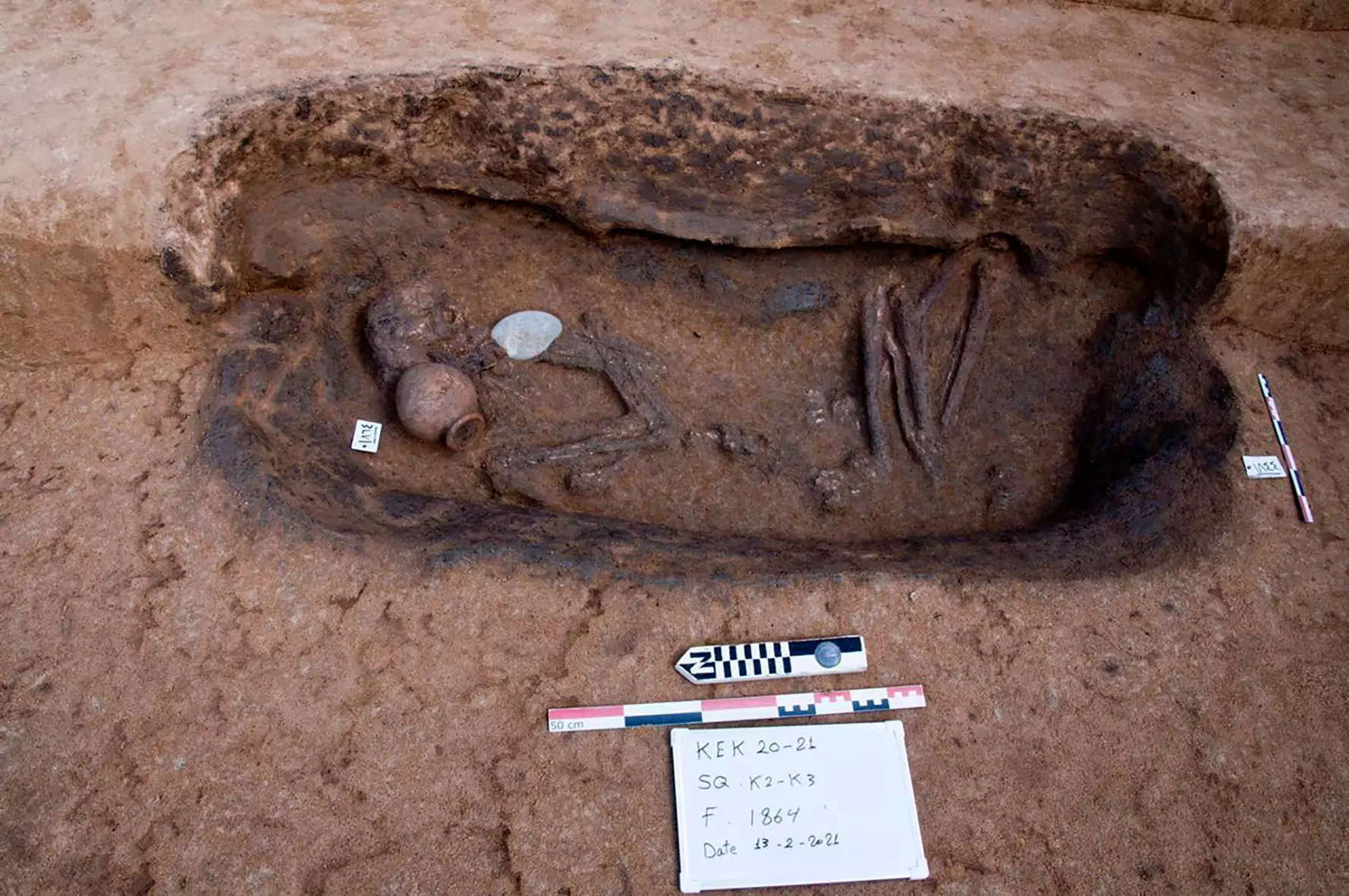
Archaeologists in Egypt have uncovered 110 rare tombs, many of which date back to the period before the country's Pharaonic kingdoms that first emerged more than 5,000 years ago.
The Egyptian Tourism and Antiquities Ministry said on Tuesday that the graves were found at the Koum el-Khulgan archeological site in Dakahlia province, which lies around 150 kilometres north-east of Cairo.
Advert
The discovery included 68 oval-shaped tombs dating back to the Predynastic Period that spanned from 6000-3150 BC, with the ministry saying some graves had human remains inside.
Archaeologists also found 37 rectangular-shaped tombs from a later period nearby - these hailing from an era known as the Second Intermediate Period (1782-1570 BC), which was when the Semitic people of Hyksos ruled Egypt.
As well as this, they found a further five oval-shaped tombs dating back to the Naqada III period (3200-3000 BC).

The ministry said archaeologists found the human remains of adults and children, plus funerary equipment and pottery objects inside some of the tombs.
Advert
They also discovered remnants of brick buildings, ovens, stoves, crockery, amulets - some of which were made of semi-precious stones - earrings and other ornaments.
Dr Ayman Ashmawi, Head of the Egyptian Antiquities Sector at the Supreme Council of Antiquities, said the 68 earliest-dated tombs were oval-shaped pits, which contained people buried in a squatting position.

Ashmawi said most of the people buried inside the tomb had been laid on their left side, their head pointing westward.
Advert
He added: "In addition to uncovering the remains of a baby buried inside a pottery vase from the Bhutto 2 period, a small pot of spherical pottery was placed with it."
Dr Mustafa Waziri, Secretary-General of the Supreme Council of Antiquities, said the discovery is an important historical and archaeological development for the site and its surrounding area, explaining that continued excavations 'will continue to reveal more secrets from this region'.

Salima Ikram, an Egyptologist at the American University in Cairo, said: "This is an extremely interesting cemetery because it combines some of the earliest periods of Egyptian history with another important era, the time of the Hyksos.
Advert
"Egyptologists are working to understand how the Egyptians and the Hyksos lived together and to what degree the former took on Egyptian traditions."
Featured Image Credit: PATopics: World News, News, egypt